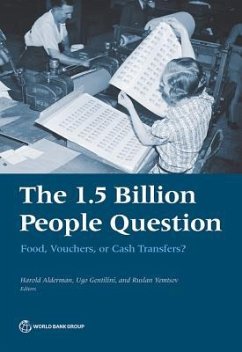Sheds light on the complex, bumpy and non-linear process of how some flagship food-based social protection programs have evolved over time, and how they currently work. In particular, this volume lays out the broad trends in reforms, including a growing move from in-kind modalities to cash transfers, from universality to targeting, and from agriculture to social protection.







